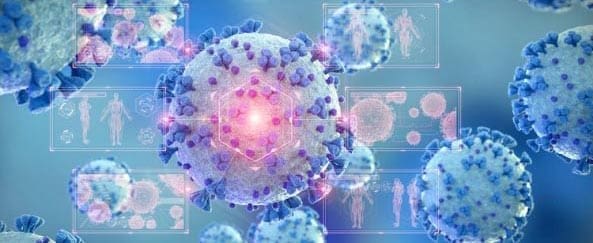Special finishes are done on textile materials to enable it to use for special purposes such as the finishing of fabrics with flame retardants can reduce the tendency to burn or reduce the tendency to propagate the flame. Laminating is the permanent joining of two or more prefabricated fabrics. Special finishes on fabric during the present situation of covid 19 is being introduced.
The Indian Institute of Technology (IIT) here has developed an “infection-proof fabric” to be used at hospitals to prevent hospital-acquired infections (HAIs). The development by “Fabiosys Innovations”, a start-up incubated at IIT-Delhi, comes at a time when the world is dealing with the deadly coronavirus outbreak. However, the team has been working on the project for over a year with support from the government’s Department of Science and Technology.
According to official statistics from the Ministry of Health and Family Welfare, for every 100 hospitalised patients in developing countries, 10 acquire HAIs and the risk is even higher at the time of a coronavirus outbreak.
The team claims to have developed an affordable, novel textile-processing technology, which converts regular cotton fabric into infection-proof fabric. “We take rolls of cotton fabric and treat it with a set of proprietary-developed chemicals under a set of particular reaction conditions, using the machinery already commonly available in textile industries. The fabric, after undergoing these processes, gains the powerful antimicrobial functionality,” Samrat Mukhopadhyay, a professor at the Department of Textile and Fibre Engineering in IIT-Delhi, said.
“What is interesting about the Fabiosys’ fabric is that even after washing multiple times, it does not lose its functionality. This fabric can be stitched into various articles such as bedsheets, the uniforms for patients, doctors and nurses and even curtains. The fabric satisfies the Indian washing standards in terms of number of washing. It is also completely non-toxic and affordable,”
A Swiss textile innovation company has fast-tracked the launch of an antiviral and antimicrobial textile treatment after it proved to be effective against the coronavirus.
The Viroblock NPJ03 from HeiQ uses a combination of vesicle and silver technologies; the former targets lipid-enveloped viruses (such as Covid-19), while the latter inhibits the growth and persistence of bacteria and viruses.
In its in-house tests on face masks, the treatment reduced the virus infectivity by over 99.99%.
As well as masks, the technology can be applied to a wide range of textile surfaces, including air filters, medical gowns and curtains, with single-use non-woven fabrics being a particularly smart application.
“Our goal is to prevent textiles from becoming a host surface for propagating harmful viruses and bacteria – and contribute to reduce the risk and speed of contamination and transmission,” says Carlo Centonze, chief executive of HeiQ Group.
RONSE – Textile innovator Devan Chemicals has undertaken further testing of its BI-OME AV antibacterial treatment in light of the coronavirus outbreak and found that it can act as an effective barrier against the airborne virus.
The Belgian firm worked with Institut Pasteur de Lille in France to test the textile coating against both enveloped – such as H1N1 and corona-type – and naked viruses like the rotavirus. It reports that it “showed strong to excellent activity in wet state” and so believes it could be leveraged both by frontline professionals and the general public which is increasingly adopting sub-par alternatives.

